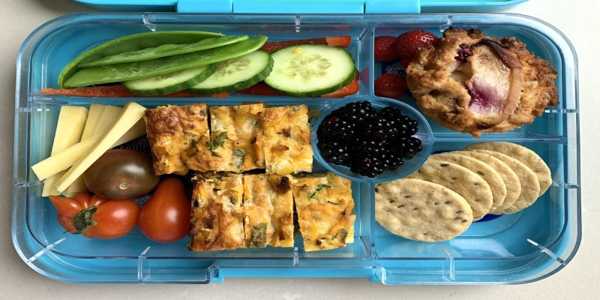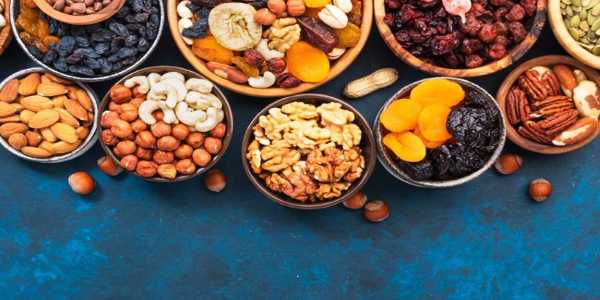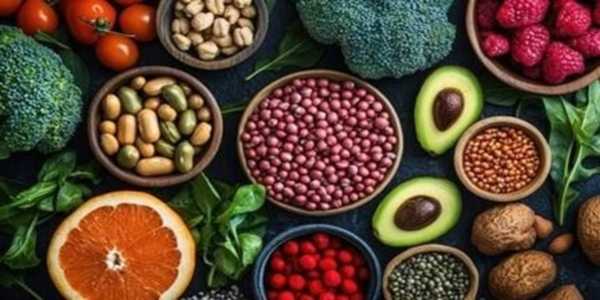Understanding Macronutrients: Proteins, Carbs, and Fats
Ever wondered what fuels your body all day? The right balance of macronutrients—proteins, carbs, and fats—can boost energy and improve health. This guide explains how they work together and offers simple tips and meal ideas to help you feel stronger and energized every day.

What Are Macronutrients?
Macronutrients are proteins, carbohydrates, and fats- the types of nutrients that the body craves in very large amounts. They are what give energy through calories and serve as building blocks for growth, repair, and vitality through metabolism.
Each macronutrient performs a very specific function that comes together to keep a person going. Understanding the balance between them is the basis for a macronutrient plan that will improve health.
Proteins: the builders of the body, mending tissues, and building muscle. Eggs, chicken, beans, and tofu.
Carbohydrates: All energy, especially brain and body. Whole grains, fruits, and vegetables.
Fats are the providers of energy, hormones, and the absorption of nutrients. This is where avocados, nuts, and olive oil shine.
Thus, a macronutrient guide would empower one to combine all these nutrients for great wellness. But why should one put importance on them in the first place?
Building Your Macronutrient Plan
A macronutrients plan tailors proteins, carbs, and fats to your goals—whether weight loss, muscle gain, or sustained energy. A common starting point is 40% carbs, 30% protein, and 30% fats, adjusted based on activity level and needs. Online calculators can estimate your daily calorie needs, then divide them among macronutrients.
For a 2,000-calorie diet, this translates to:
Carbs: 800 calories (200g, since 1g = 4 calories)
Protein: 600 calories (150g, since 1g = 4 calories)
Fats: 600 calories (67g, since 1g = 9 calories)
Tracking apps like Cronometer simplify this process. A macronutrient plan isn’t rigid— it’s a flexible framework. Let’s explore macronutrient tips to make it seamless.
Sample Macronutrients Plan
This 2,000-calorie macronutrients plan balances proteins, carbs, and fats for a day of vibrant energy. Adjust portions to suit your needs.
Breakfast: Protein-Packed Smoothie (500 calories, 40g protein, 50g carbs, 15g fat)
1 scoop whey protein powder
1 banana
1 cup spinach
1 tbsp peanut butter
1 cup unsweetened almond milk Blend until smooth for a nutrient-dense start.
Lunch: Grilled Chicken Quinoa Bowl (600 calories, 40g protein, 60g carbs, 20g fat)
5 oz grilled chicken breast
¾ cup cooked quinoa
1 cup roasted broccoli
½ avocado1 tbsp olive oil drizzle
Assemble for a colorful, satisfying meal.
Snack: Greek Yogurt with Berries (200 calories, 15g protein, 20g carbs, 5g fat)
¾ cup plain Greek yogurt
½ cup mixed berries
1 tbsp chia seeds
Layer for a creamy, antioxidant-rich treat.
Dinner: Baked Salmon with Sweet Potato (600 calories, 35g protein, 50g carbs, 25g fat)
5 oz salmon fillet (baked with lemon)
1 medium sweet potato (roasted)
1 cup sautéed kale
1 tbsp butter
Plate for a hearty, nutrient-packed dinner.
Snack: Almonds and Orange (100 calories, 3g protein, 12g carbs, 7g fat)
12 almonds
1 small orange
A refreshing, balanced bite.
Macronutrient Recipes to Delight
These macronutrient recipes prove balanced eating is delicious. Each dish aligns with an accurate macronutrient plan, bursting with flavor.
Recipe 1: Turkey and Veggie Skillet (400 calories per serving, 30g protein, 30g carbs, 15g fat)
Ingredients (serves 2):
8 oz ground turkey
1 cup diced zucchini
½ cup corn kernels
½ cup cooked brown rice
1 tbsp olive oil
1 tsp paprika
Instructions:
Heat olive oil in a skillet; cook turkey until browned.
Add zucchini and corn; sauté 5 minutes.
Stir in rice and paprika; cook 2 minutes.
Serve warm.
This skillet is a protein-carb-fat trifecta.

Recipe 2: Chickpea and Avocado Salad (350 calories per serving, 12g protein, 40g carbs, 15g fat)
Ingredients (serves 2):
1 cup canned chickpeas (rinsed)
½ avocado, diced
1 cup cherry tomatoes, halved
2 cups arugula
1 tbsp olive oil
1 tbsp balsamic vinegar
Instructions:
Toss chickpeas, avocado, tomatoes, and arugula.
Drizzle with oil and vinegar.
Mix and serve fresh.
This salad is a vibrant, nutrient-rich delight.
Recipe 3: Peanut Butter Energy Bites (150 calories per serving, 5g protein, 15g carbs, 8g fat)
Ingredients (serves 4):
½ cup rolled oats
¼ cup peanut butter
2 tbsp honey
2 tbsp dark chocolate chips
Instructions:
Mix all ingredients in a bowl.
Roll into 8 small balls.
Chill for 30 minutes before enjoying.
These bites are a balanced, grab-and-go treat.
Your Path Forward
Ready to dive into macronutrients? Start by calculating your daily calorie needs and then divide them between proteins, carbs, and fats. Try following the macronutrient plan above, track your intake for a week, and tweak it as you go. Looking for ideas? Check out the macronutrient-rich recipes and get creative in the kitchen.
Your journey to better health begins with one balanced meal. So, blend up a smoothie, toss a healthy salad, or roll some energy bites. The path to a stronger, healthier you is just a bite away.




